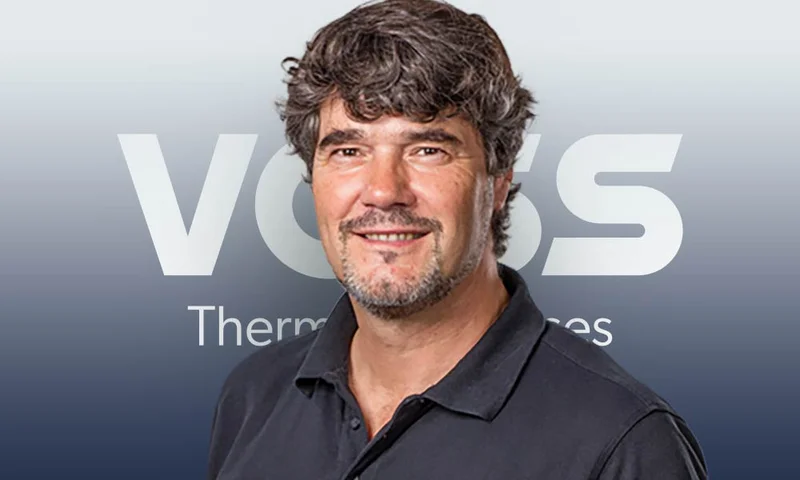Franz Paasche's Verizon Move: What it Means?
Franz Paasche's Verizon Leap: More Than a New Hire, It's a Stakeholder Revolution
Okay, folks, buckle up, because this isn't just another executive appointment. When I saw the news that Franz Paasche is joining Verizon as Executive Vice President of Corporate Affairs, effective November 10th, I felt that familiar jolt of excitement—the kind you get when you see the pieces of a puzzle finally clicking into place. This isn't just about shuffling titles; it's about Verizon fundamentally rethinking its relationship with, well, everyone.
Think about it: Paasche isn't just some corporate suit. This is a guy who helped define PayPal's mission and values, building its reputation to the point where it was consistently named one of the World’s Most Admired Companies. And before that, he was navigating complex communications at McKinsey & Company. He's seen the inside workings of organizations at the highest level, and he gets how crucial it is to connect a company's purpose to the people it serves.
A New Era of Corporate Responsibility
Verizon's CEO, Dan Schulman, gets it too. Schulman, also a PayPal alum, said it best in his announcement: “We have an opportunity to redefine not just who we are as a company, but to fundamentally change and lead our entire industry.” That's not just corporate-speak; that's a declaration of intent. He's not just talking about incremental improvements; he's talking about a paradigm shift.
And what's the Big Idea here? It's about stakeholder capitalism—the idea that a company's responsibility extends beyond just shareholders to include employees, customers, partners, policymakers, and society as a whole. It's about building trust and transparency in a world where those things are more valuable than ever.
Verizon is consolidating its Global Communications Organization, Responsible Business team, and Public Policy and Government Affairs team under Paasche's leadership. This isn't just about streamlining operations; it's about creating a unified front, a single voice that speaks to all stakeholders with clarity and purpose. It’s like turning a collection of instruments into a cohesive orchestra—suddenly, the whole becomes far greater than the sum of its parts.
Now, I know what some of you might be thinking: "Okay, Aris, that sounds great, but what does it really mean?" Well, imagine a world where Verizon isn't just providing internet and phone service, but actively working to bridge the digital divide, to promote responsible technology use, to advocate for policies that benefit everyone. What if your telecom company was a force for good, actively shaping a better future? That's the potential here, and it’s something that gets me genuinely excited.

Of course, with great power comes great responsibility. As Paasche steps into this role, the pressure will be on to deliver real, tangible results. The question is, how do you measure something as intangible as "stakeholder engagement"? How do you ensure that these efforts translate into meaningful change? These are the questions that keep me up at night, but I'm optimistic that Paasche and Schulman are up to the challenge.
One thing that gives me confidence is seeing Schulman’s track record. He specifically called out Paasche’s pivotal role in defining PayPal’s mission. That tells me that he isn’t just looking for someone to manage communications; he’s looking for someone to help shape the very soul of Verizon.
And consider this: Paasche's recent departure from Columbia University, after a short but impactful stint, underscores his ability to navigate complex situations under pressure. Some headlines painted his exit as a result of external pressures, but Acting University President Claire Shipman described him as a "trusted advisor and sounding board during an extraordinary time." That speaks volumes about his character and his ability to provide steady leadership in the face of adversity. What were the real reasons for his departure? Details remain scarce, but the vote of confidence from Shipman speaks volumes. More information on his departure can be found in Franz Paasche, Law ’87, steps down as executive vice president for Columbia’s public affairs and communications.
What does the community think? I took a quick peek at some tech forums, and one comment really stood out: "Finally, a company that gets it! It's not just about profits anymore; it's about people." That sentiment, that collective desire for businesses to be more responsible, is a powerful force.
Verizon's About to Rewrite the Rules
This move feels like a genuine inflection point. It's a recognition that in today's world, a company's reputation is its most valuable asset, and that reputation is built on trust, transparency, and a genuine commitment to doing what's right. The speed of this is just staggering—it means the gap between today and tomorrow is closing faster than we can even comprehend.
We must remember that technology is a tool, and like any tool, it can be used for good or for ill. As Verizon embarks on this new chapter, it's crucial that they remain mindful of the ethical implications of their work. They have the power to shape the future, and with that power comes a responsibility to use it wisely.
Prepare for a New Kind of Verizon
Tags: franz paasche
Related Articles
